Occupy & Women’s Equality – On Saturday 19 November 2011 Occupy London was in full swing in St Paul’s Churchyard and elsewhere and the Fawcett Society were protesting against government cuts that were reversing the movement to greater equality for women.
Don’t Turn The Clock Back – Temple to Westminster
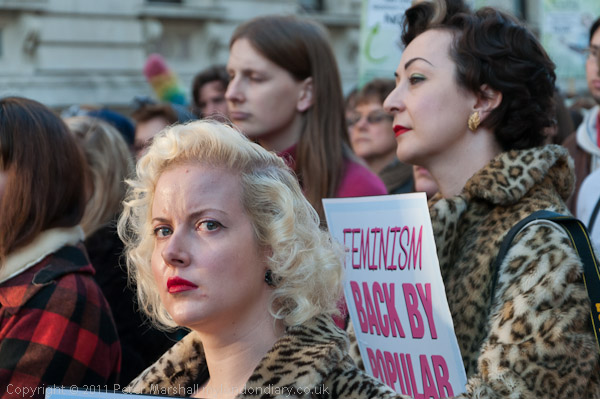
The Fawcett Society were angered by government’s cuts which they said were putting the clock back on the advances which women have made towards equality since the 1950s, and had organised a march in protest with a 1950s theme.
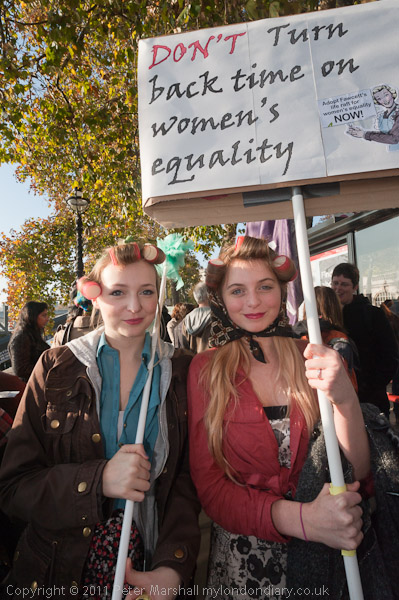
Many of the marchers, mainly women, had come dressed in 1950s styles “ranging from the most elegant of Paris fashion of the day to aprons, hairnets and curlers. Others carried brushes or brooms, wooden spoons or other kitchen implements as symbols of what they felt was the only role our government can envisage for women, the ‘good little wife’.”
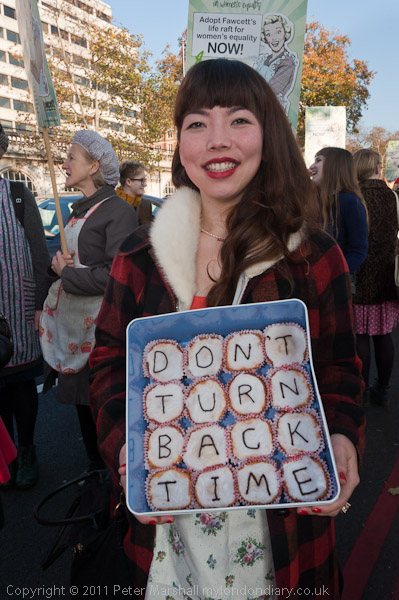
Many women had been particularly angered by the sexist and patronising putdown in parliament made by then Prime Minister David Cameron, a man who a few days ago made a surprising return to a leading role in UK politics. Probably insulated as he has been from normal life by an education at Eton and Oxford and wealth he thought little about his sexist and patronising put-down ‘Calm Down Dear!’ to Labour’s Angela Eagle in the House of Commons, but it enraged at least half the nation.
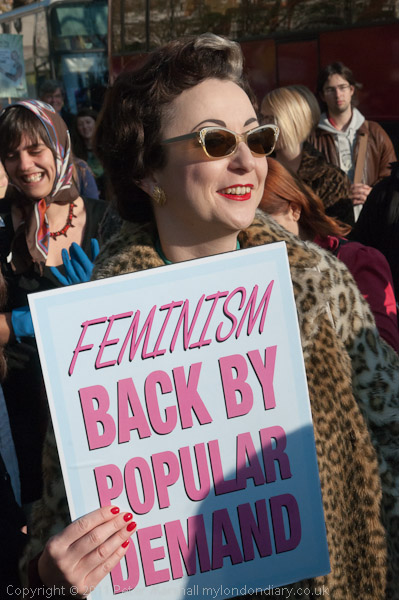
On the march people chanted ‘Calm Down Dear!’ followed by the deafening response ‘No We Won’t!‘ The marchers also had some caustic comments directed at the press (though not us journalists covering the march) for their “belittlling labelling of some groups of women in public life – such as ‘Blair’s Babes‘ – as well as the general predominance of semi-pornographic imagery and demeaning attitudes to women.”
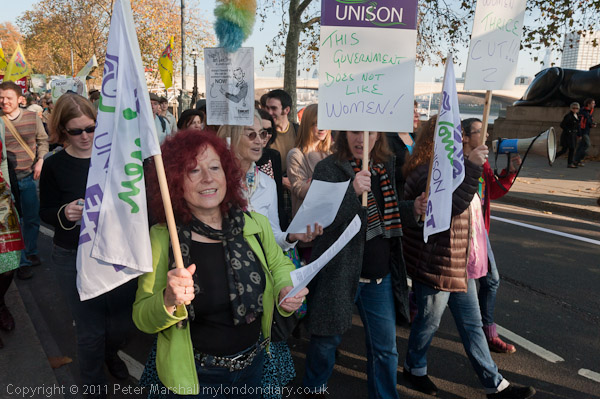
But it was the cuts that really were the focus of the march, particularly the cuts in public services. A majority of those who will lose their jobs are women, employed in the NHS and elsewhere. And women depend more on the various services that will be cut, and will also have disproportionally to provide unpaid services such as care to make up for those cut. Finally the cuts in pensions will also have a larger effect on women who were already seeing a raise in their pension age.
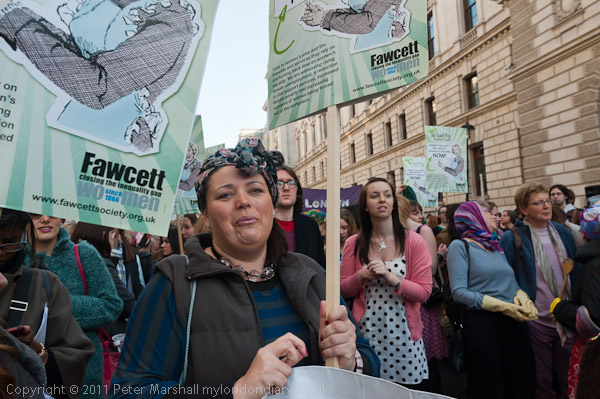
The Fawcett Society was founded in 1866 to campaign peacefully for votes for women and remains a powerful campaigning organisation for equal rights. It had called on a wide range of speakers for its rally including journalist Tanya Gold, Estelle Hart, NUS Women’s Officer, comedians Kate Smurthwaite and Josie Lond, Heather Wakefield of Unison, Vivienne Hayes from the Women’s Resource Centre, Chitra Nagarajan of Southall Black sisters. Aisha Mirza from UK Uncut and a spokesperson for the Turkish and Kurdish Refugee Women’s group.
More at Don’t Turn The Clock Back.
At Occupy London
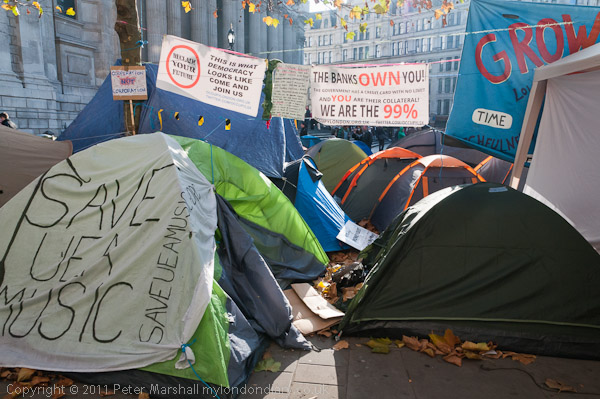
I’d visited Occupy in St Paul’s Churchyard briefly before going to photograph the Fawcett Society march and returned later in the day to visit the ‘Bank of Ideas’ in Sun Street and Occupy Finsbury Circus before returning to St Pauls to hear a range of speakers on other campaigns both in London and around the world, including news of the Occupy movement from the USA and Bristol, where the occupation seems not to have attracted the opposition shown by the City authorities and sections of the church in London.
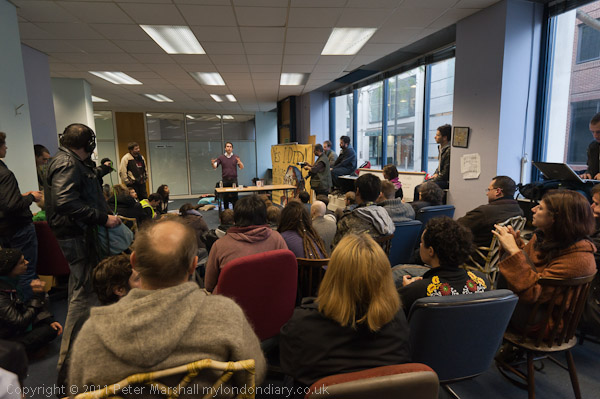
The Bank of Ideas was an empty former UBS bank building in Sun Street that was occupied and used for a wide range of meetings and discussions.
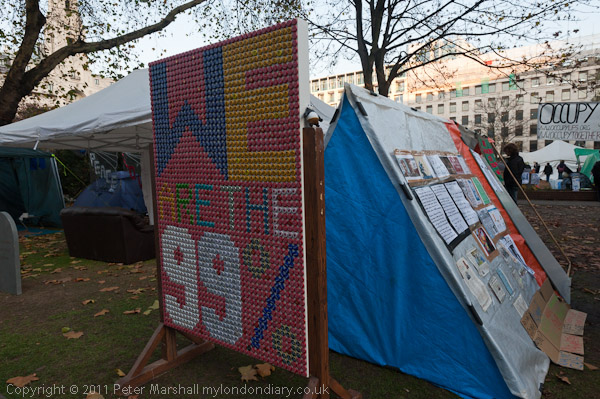
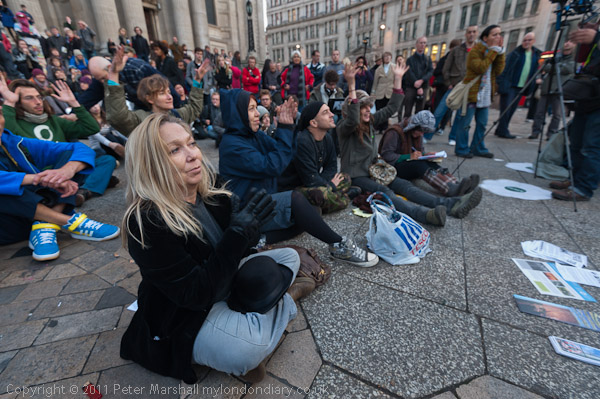
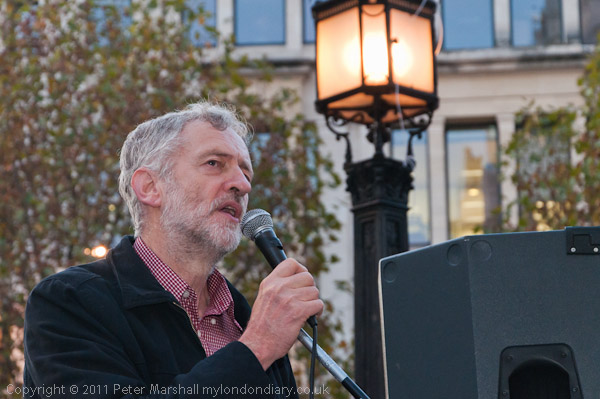
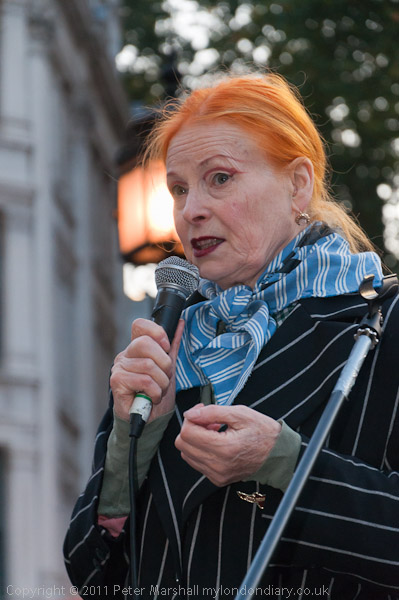
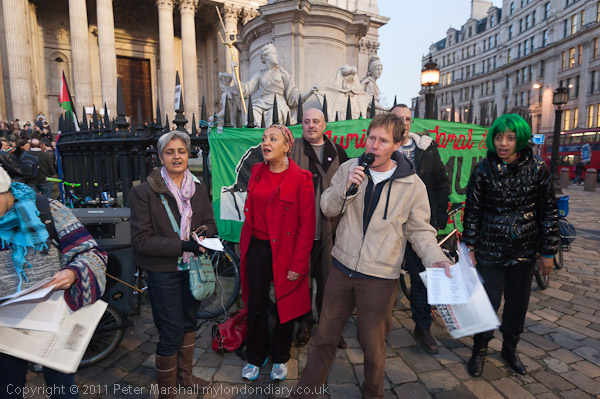
Later a group who had taken part in the non-Stop Picket of South Africa House started by the City of London Anti-Apartheid Group on 19 April 1986 shared some of their songs and their experience.
They had defied defied the attempts of British police, the British government and the South African embassy to remove them for almost 4 years until Mandela was released in 1990. There had been around a thousand arrests, but 96% of the cases brought to court were dismissed. Before this they had organised a number of shorter non-stop protests outside the embassy, the first of which in 1981 lasted 86 days and resulted in South African political prisoners including David Kitson being moved to better conditions.
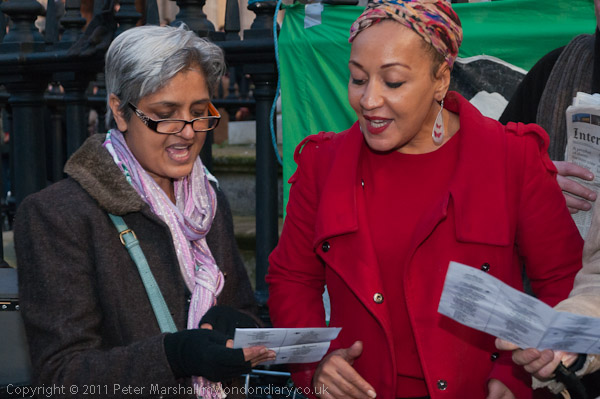
The official Anti-Apartheid Movement opposed their actions and expelled them from the movement, warned trade union and local anti-apartheid groups not to have anything to do with them and asked Westminster Council to remove them. It wanted to avoid any confrontation with the British Government and opposed the City of London group’s support for other African liberation movements as well as the African National Congress.
More from the day at Occupy on My London Diary:
City of London Anti-Apartheid Group
Speakers At Occupy London
Bank of Ideas & Finsbury Square
Saturday Morning Occupy London